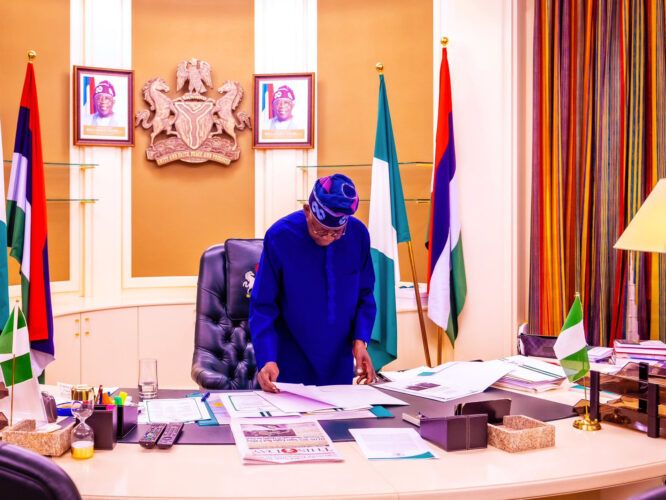The World Bank has sanctioned a $2.25 billion loan for Nigeria aimed at stabilizing its economy through reforms and bolstering assistance to the impoverished. Wale Edun, Nigeria’s Finance Minister, revealed this development on Thursday. In April, Mr. Edun had previously announced Nigeria's qualification for and intention to secure the $2.25 billion loan from the World Bank. The loan is anticipated to play a crucial role in supporting Nigeria's economic recovery efforts amidst ongoing challenges.
According to a statement from Mohammed Manga, spokesperson for the Ministry of Finance, the approved funding encompasses $1.5 billion allocated to the Nigerian Reforms for Economic Stabilisation to Enable Transformation (RESET) Development Policy Financing Programme (DPF) and $750 million for the Nigeria Accelerating Resource Mobilisation Reforms (ARMOR) Programme-for-Results (PforR). This total of $2.25 billion is set to provide essential financial and technical assistance as the government continues to address economic imbalances.
The statement highlights that these funds will aid Nigeria in its objectives to boost non-oil revenues and ensure fiscal sustainability, enabling the delivery of high-quality public services. Mr. Edun expressed gratitude for the World Bank's support and stressed the importance of these reforms in achieving sustainable and inclusive economic growth, generating jobs, and creating economic opportunities for all Nigerians.
He noted that the RESET initiative aims to strengthen Nigeria’s economic policy framework, create fiscal space, and protect vulnerable populations. Meanwhile, the ARMOR PforR program will support tax and excise reforms, enhance tax revenue and customs administration, and safeguard oil revenues.
Ousmane Diagana, the World Bank’s Vice President for Western and Central Africa, commended Nigeria’s efforts in reshaping its economy, emphasizing that comprehensive macro-fiscal reforms could stabilize the economy and reduce poverty. Diagana underscored the importance of sustaining these reforms and continuing to support vulnerable populations to mitigate the impact of the cost-of-living crisis.









